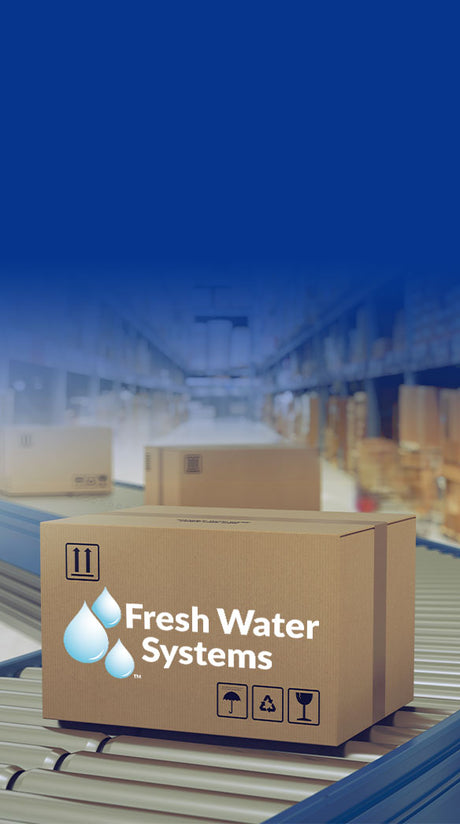Food & Beverage Filtration Systems
Everpure Commercial
Regular price $309.68 Unit priceUnit price /UnavailablePart #: EV-QC7I-ESO7
Everpure Commercial
Regular price $675.00 Unit priceUnit price /UnavailablePart #: EV-QC7I-ESO7-TWIN
- Regular price $132.42 Unit priceUnit price /UnavailableLow stock
Part #: 56160-01
Everpure Commercial
Regular price $95.45 Unit priceUnit price /UnavailablePart #: EV9275-60
Everpure Commercial
Regular price $309.68 Unit priceUnit price /UnavailablePart #: EV-QC7I-MH2
Everpure Commercial
Regular price $415.96 Unit priceUnit price /UnavailableVery low stockPart #: EVMC2-SYSTEM
- Regular price $128.94 Unit priceUnit price /UnavailableVery low stock
Part #: 56176-10
Everpure Commercial
Regular price $309.68 Unit priceUnit price /UnavailablePart #: EV9275-01
Clear Water Technologies
Regular price $674.04 Unit priceUnit price /UnavailablePart #: CD385
Everpure Commercial
Regular price $295.27 Unit priceUnit price /UnavailableVery low stockPart #: EV9324-60
Everpure Commercial
Everpure Insurice Single PF-i2000(2) System w/ Prefilter EV9324-21
Regular price $461.55Part #: EV9324-21
-

Get a Quote
Fast, Free, Custom
- Regular price $187.95 Unit priceUnit price /UnavailableVery low stock
Part #: 56160-04
- Regular price $355.37 Unit priceUnit price /UnavailableSold out
Part #: 80-6100
Everpure Commercial
Regular price $1,419.24 Unit priceUnit price /UnavailableVery low stockPart #: EV9329-73
- Regular price $189.28 Unit priceUnit price /UnavailableLow stock
Part #: 56160-03
Everpure Commercial
Regular price $403.18 Unit priceUnit price /UnavailableVery low stockPart #: EV9324-61
- Regular price $131.08 Unit priceUnit price /UnavailableLow stock
Part #: 56160-02
Everpure Commercial
Everpure EV9797-50 Kleensteam CT System for Steam Applications
Regular price $614.92 Unit priceUnit price /UnavailableVery low stockPart #: EV9797-50
Everpure Commercial
Everpure EV9293-01 Coldrink/Insurice Single Manifold with 10" Prefilter
Regular price $332.68 Unit priceUnit price /UnavailablePart #: EV9293-01
Everpure Commercial
Everpure EV932473 Insurice Twin PF-7SI Water Filter System with Pre-Filter
Regular price $790.27 Unit priceUnit price /UnavailableVery low stockPart #: EV9324-73
- Regular price $243.35 Unit priceUnit price /UnavailableVery low stock
Part #: 56162-03
-

MOST ORDERS OVER $89
FREE SHIPPING
KineticoPRO
Regular price $28.79 Unit priceUnit price /UnavailableLow stockPart #: 300-741A
Everpure Commercial
Regular price $805.88 Unit priceUnit price /UnavailablePart #: EV-QC7I-ESO7-TRIPLE
Everpure Commercial
Regular price $444.38 Unit priceUnit price /UnavailablePart #: EV9797-82
Want to learn more?
Why filter water for foods and beverages?
Water is an essential ingredient in the food and beverage industry, and a water filtration system is crucial for the safety of consumers and quality products. Unfiltered water could alter the flavor of recipes or make consumers sick. Thankfully, water quality is not out of a restaurant or manufacturer’s control. Filtered water ensures that packaged foods and menu items are fresh and delicious. Commercial water filtration systems remove mineral deposits, scale, sediment, chlorine, and other contaminants from your water and foodservice equipment.
The products in this collection provide filtration for commercial steamers and soda fountains. If you need a filtration system for your coffee shop or ice maker, then browse our coffee and espresso and ice filtration collections. View all water filtration systems to meet any water quality need.
Uses for Water Filtration in the Food and Beverage Industry
- • Processing meats, fruits, veggies, oil
- • Manufacturing dairy
- • Grain and sugar production
- • Animal food production
- • Soda fountain filtration
- • Commercial cooking
- • Crafting coffee, tea, and espresso
- • Ice production
Benefits of Restaurant Water Filtration
Investing in food and beverage filtration is vital to a successful business. If you run a restaurant and overlook the importance of filtered water, the consequences could eat into your profits. Not only does a water filtration system reduce sediment, cysts, lime, calcium, chlorine, and nasty tastes and odors, but it also increases the life and efficiency of your machinery. In fact, not using filtered water may void the warranty on your equipment.
Delicious flavor and consistent quality
A fountain beverage is 85% water, which means that no amount of syrup will mask poor water quality. Providing customers with the same great flavors each time they order from your restaurant or purchase your product no matter where they purchase helps establish the character of your brand. Location can influence the quality of your water. Water will affect recipes differently depending on the level of minerals and contaminants. A water filtration system ensures that foods and beverages will taste the same no matter where you go.
Clean equipment
When you use filtered water to wash your dishes, you prevent scum from spotting the surface and scale from building up on expensive appliances. Steamers, combi ovens, and soda fountains with mineral buildup run less efficiently and break down sooner without commercial water filters.
Healthy consumers
Fresh water is important for producing packaged foods, cooking meals, and washing fruits and veggies. Some contaminants cause food to spoil sooner, but filtering water prolongs the shelf life. Water filtration protects volatile organic compounds (VOCs), lead, and chloramines from contaminating your foods and beverages. Mechanical filtration (less than .5 microns) reduces some airborne bacteria and viruses that would make your customers sick.
Learn more about commercial food and beverage filtration on our blog.
Commercial Water Filtration Systems for Fountain Beverages
Fountain beverages are often made with a 5:1 ratio of water to syrup. Water is the primary ingredient in soda, and melting ice only increases the quantity. In the past, soda companies used unfiltered water to make beverages, but hiding unwanted flavors and odors was challenging. People added lemons and limes to mask the unpleasant tastes and smells in their favorite drinks, and soda shops would increase the syrup content. Eventually, soda manufacturers learned that they could use less syrup with filtered water and avoid over-sweetening their beverages.
Standards for Delicious Soda
Chlorine is the most common culprit of bad tastes and odors in soda. Most businesses receive water from a municipal treatment plant that uses chlorine or some other chemical disinfectant to purify the water, which taints the taste of beverages. Soda can also taste or smell dirty from unfiltered sediment and debris, metallic from undesirable metals, and moldy from bacteria.
Coca-Cola is one company who understands the importance of water quality to their brand. The CCNA (Coca-Cola North America) sets water quality standards for any business that sells Coke products.
What's required by the CCNA?
- • Removing bad tastes and odors
- • Reducing chlorine
- • Removing visible particles
- • NSF 42 and 53 certified filtration systems
- • Water that meets EPA drinking water regulations
The CCNA recommends a reverse osmosis system when water is high in total dissolved solids (TDS > 800-1000 ppm). A water softener could also be used to reduce unwanted miners, but if TDS exceeds 500 ppm, then it will negatively impact carbonation. A water filtration system that meets NSF 42 standards effectively reduces chloramine, particulates, and chlorine taste and odor. One that meets NSF 53 standards removes cysts, turbidity, and asbestos.
When installing food and beverage filtration equipment, consider your incoming water pressure. Water should meet minimum pressure requirements for your system. 50 psi is ideal. If you have low water pressure, then you may also need a booster pump. Low water flow to your fountain beverage equipment will make the soda extra syrupy.
Flow rates from CCNA:
- • Low: 1.67 gpm
- • Medium: 3.4 gpm
- • High: 5 gpm
Commercial Water Filtration Systems for Steam Appliances
If you’re aiming for a five-star menu, then use filtered water for culinary steam. If you prepare any recipe that requires water, then you should have a filtration system. Filtered water brings out the best flavor of soups, sauces, and pasta.
The two primary contaminants to remove from steam are:
- Chlorine
- Minerals that cause hard water
Steam turns liquid into gas and leaves contaminants behind that could clog appliances. You may need a water softener to remove minerals from the water. Be aware that water softening increases sodium levels that could influence the flavor of food in cases of extreme hardness. If you have soft water but want to remove chlorine, chloramines, or bad tastes and odors, use a carbon filter. A reverse osmosis system includes a membrane that removes dissolved solids as well as a carbon filter.
Browse commercial ice filtration systems by brand: 3M Aqua-pure | Everpure | Selecto Scientific
Browse all water filtration systems.


![Everpure Insurice Single-i2000[2] Filter System EV9324-01](http://www.freshwatersystems.com/cdn/shop/files/utrztiegfhk5tcovg9vs.jpg?v=1766566919&width=460)

![Everpure Insurice Twin-i2000[2] Filter System EV9324-01](http://www.freshwatersystems.com/cdn/shop/files/bqdrthakvd33zopyemkx.jpg?v=1766567061&width=460)



![Everpure QC7i Single-MH[2] System](http://www.freshwatersystems.com/cdn/shop/files/jhoq2pencvni7crdhe6m.jpg?v=1766568586&width=460)






![Everpure Insurice Single PF-i2000[2] System w/ Prefilter EV9324-21](http://www.freshwatersystems.com/cdn/shop/files/ejf7a1tm46wazd4bipkx.jpg?v=1766567175&width=460)














